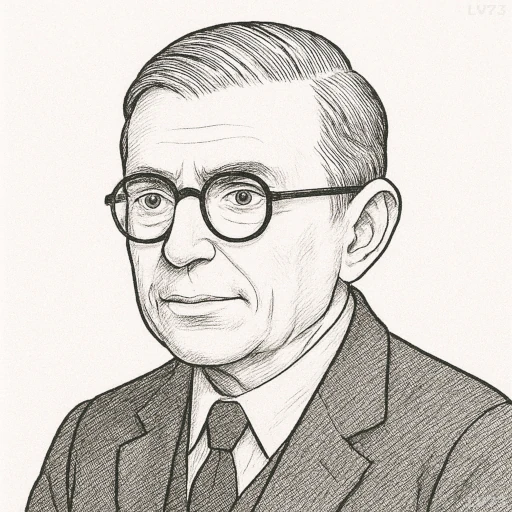“The poor don’t know that their function in life is to exercise our generosity.”

- June 21, 1905 – April 15, 1980
- Born in France
- Philosopher, novelist, playwright
table of contents
Quote
“The poor don’t know that their function in life is to exercise our generosity.”
Explanation
In this quote, Sartre critiques the social system that positions the poor in a subordinate role, often limiting their agency and reducing them to mere recipients of the charity or generosity of the wealthier classes. The phrase “their function in life is to exercise our generosity” exposes the way society often views the poor not as active participants in their own lives, but as objects of benevolence. Sartre’s words reveal the moral hypocrisy inherent in a system where the poor are expected to be the recipients of goodwill, while their human dignity and autonomy are overlooked or denied. The poor, in this system, are reduced to a role in the lives of the wealthy, as objects of altruism rather than as equals with their own agency and value.
The quote also underscores Sartre’s existential view on freedom and responsibility. In his philosophy, each individual is responsible for defining their own essence and creating meaning in their lives. To Sartre, the poor are victimized not only by economic disparity but also by the reduced expectations society places on them. The notion that their “function” is merely to receive generosity denies them the freedom to define their own existence and reinforces the power dynamic that oppresses them. By positioning the poor as passive, the quote critiques the patronizing attitudes of those in power, who often fail to see the poor as active agents of their own lives.
In the modern context, this quote resonates with the ongoing issues of poverty and inequality in many societies. It critiques systems that perpetuate the idea that the poor exist solely to serve the needs or alleviate the guilt of the wealthy. Instead of promoting equality and agency, these systems trap the poor in a cycle of dependency. Sartre’s insight challenges us to rethink how society views poverty and calls for a deeper commitment to empowerment, where the poor are seen not as objects of charity, but as people with the right to shape their own futures, free from the limitations imposed by economic and social hierarchies.
Would you like to share your impressions or related stories about this quote in the comments section?


